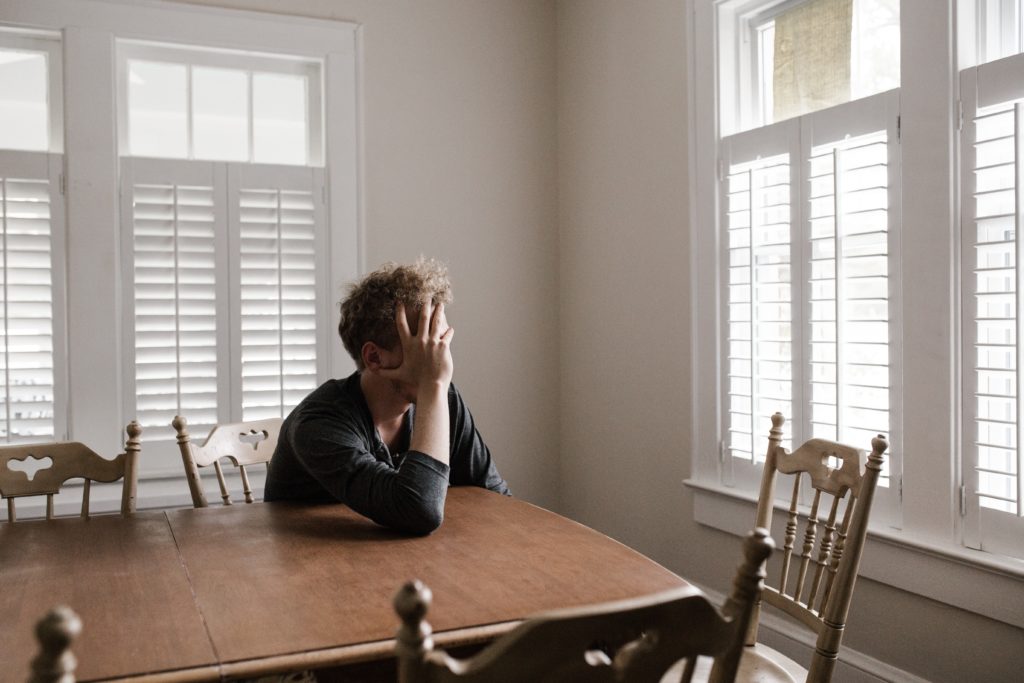If anyone has reason to feel self-pity, it would be a prisoner of the Gestapo. But later in life, Corrie ten Boom reflected on when the Gestapo soldiers forced her and her family into a prison van for harboring Jews during World War II: “In my mind I kept telling myself, ‘Don’t ever feel sorry for yourself.’”
I don’t live with that same noble aim. I’m not above feeling sorry for myself when my weekend plans fall through (or when I don’t have any plans to begin with) or I don’t have time to do the things I want to do.
Sneaky self-pity
It isn’t hard to find reasons to feel sorry for yourself once you start looking. Like a twisted form of FOMO, self-pity harps on what we don’t have that others usually do. It tells us we have it worse than we deserve — or at least not as good as other people have it. As Corrie later wrote in “Tramp for the Lord”: “Self-pity is a nasty sin, and the devil uses it and always starts his talks with ‘Poor Corrie.’”2
This year I have struggled more with prolonged singleness than I have before. While nothing seems to change for me in many ways, people around me seem to be hitting life’s milestones as expected: dating, marriage, children. Over and over, I’ve watched others enter life stages I have dreamed about for years.
Poor me.
Another wedding invite. Another bridal shower — usually for a bride years younger than I. I am growing increasingly familiar with feelings of being left behind — which can easily morph into feelings of inadequacy, bitterness, fear of being left out, self-pity.
But when I focus on what I don’t have, I’m completely missing the point.
Walking with Aslan
I re-read the Chronicles of Narnia series this year. For me, Narnia books are the comfort food of literature. There’s enough nostalgia mixed with forgotten details to make even the re-reading magical.
In “The Horse and His Boy,” young Shasta lives a rough life before escaping his sometimes abusive, always-distant father (after learning he isn’t actually his father). He and his co-adventurers sneak through enemy territory, run from lions, and survive a trek across a sweltering desert before Shasta is sent alone to warn a Narnian ally about an impending attack, only to be (albeit unintentionally) left behind.
As Shasta plods along on his horse after the others have gone on without him, he recounts his bad luck to a mysterious talking lion walking beside him. Aslan listens patiently to Shasta’s list of complaints. When Shasta finishes, Aslan says simply: “I do not call you unfortunate.”
What? A shocked Shasta reminds the lion of all his misfortunes. But then Aslan explains how he has been working through all of Shasta’s circumstances — including ways Shasta isn’t even aware of.
Shasta doesn’t have the royal, privileged childhood other characters in the story enjoy. His body aches from learning to ride a horse (and how to fall properly), and he knows the pain of dehydration in a desert. In the story, there is always someone else better off than Shasta.
But Shasta is looking at what he doesn’t have instead of trusting that Aslan has a better idea. And of course, in the end…well, I don’t want to ruin the ending for you if you haven’t read it. But in the end, Shasta more clearly sees Aslan’s work in his less-than-perfect circumstances.
Even if we don’t understand
Most (though not all) of my friends are married — with kids. Some are years younger than I but seemingly so far ahead. I may never catch up, may never have what they have.
Despite this very real possibility, it is freeing for me to remember that my circumstances are not God’s second-best. I haven’t been short-changed and my life story is not inferior to the one I would have written.
I am no closer to understanding why I don’t have the life I always thought I would. But Shasta’s story reminds me that my God does not call me unfortunate. Even if I feel left behind or left out, He is working in all my circumstances and sees the bigger picture where I’ve only caught fleeting glimpses. Even as I question my life circumstances or (unwisely) compare them with others’, my God is working out details and preparing me for my future — a future I know nothing about.
Copyright 2022 Lauren Dunn. All rights reserved.












